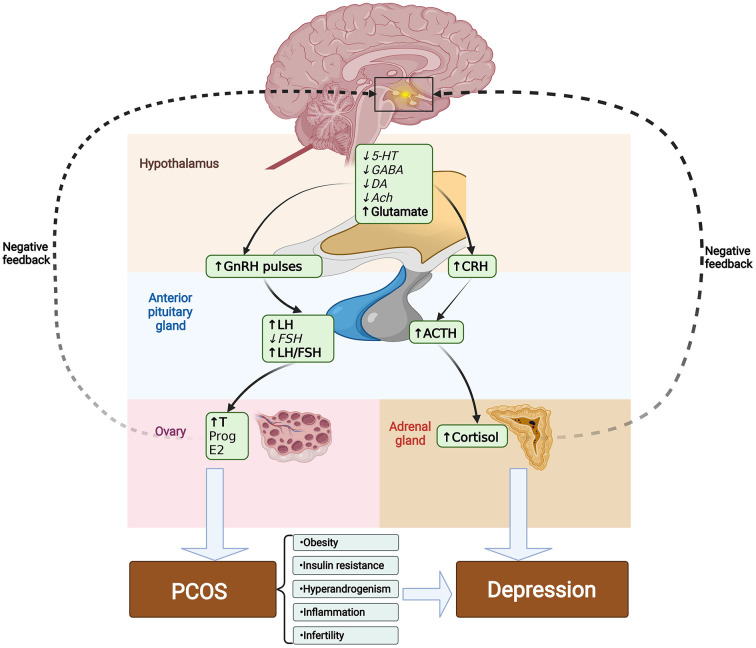Figure 1.
Changes in neurotransmitters may be involved in the pathogenesis of PCOS-induced depression. In PCOS, GnRH and LH inhibitory neurotransmitters such as 5-HT, DA, GABA and Ach are decreased. While the major stimulants of GnRH and LH such as glutamate are increased. Elevated frequency of release in GnRH encourages LH to be released from the anterior pituitary gland, while reduced frequency encourages the production of FSH, which abnormally increases the LH/FSH ratio. Elevated LH causes theca cells in the ovary to produce excessive androgen and eventually exacerbates the progression of PCOS. Decreased secretion of serotonin, acetylcholine and other neurotransmitters also negatively affects function of the HPA axis, which increases the levels of CRH, ACTH, and cortisol, causing continuous hyperactivity of the HPA axis, and leading to depression. Meanwhile, the pathological traits of PCOS, including obesity, insulin resistance, hyperandrogenism, inflammation, and infertility can exacerbate the onset of depression. Italic font indicates lower levels compared to normal, whereas bold font indicates higher levels. 5-HT, serotonin; DA, dopamine; GABA, gamma-aminobutyric acid; Ach, acetylcholine; GnRH, gonadotropin-releasing hormone; LH, luteinizing hormone; FSH, follicle stimulating hormone; T, Testosterone; E2, estradiol; CRH, corticotropin releasing hormone; ACTH, adreno-cortico-tropic-hormone.

